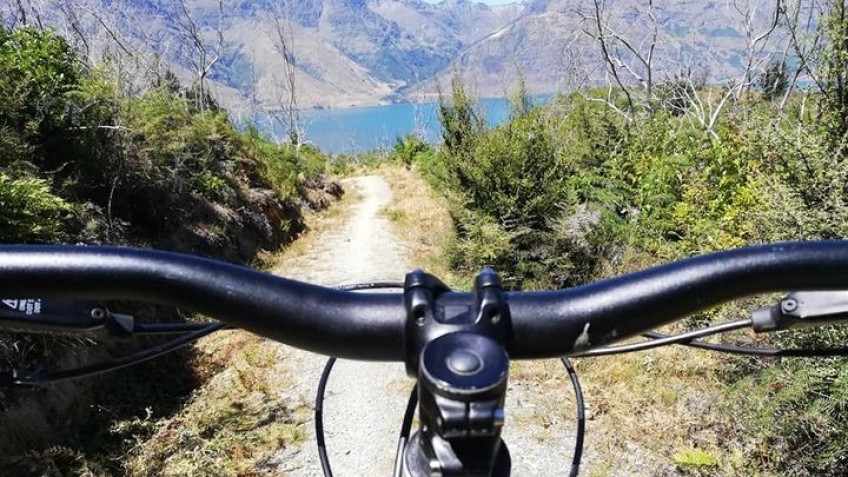Biking community rallies to save Sticky Forest trails

Keen mountain bikers in Wānaka say they will be advocating for ongoing access to a popular network of trails after a significant court decision last week.
Snaking their way through pine and fir trees and developed over decades by volunteers, more than 30 kilometres of trails crisscross Sticky Forest.
But a complex 131-page Environment Court ruling released on Wednesday now paves the way for residential development on the land instead.
Bike Wānaka's Simon Telfer says, while respecting the court's decision, the biking advocacy group will work to try and maintain use of some of the trails.
"Our focus is to build a strong relationship with the newly appointed representatives to see if public walking and biking access can still be granted for areas of Sticky that are unable to be developed," he says.
The group has placed a rallying call on social media, encouraging people who enjoy riding in Sticky Forest to renew or start memberships.
"We've been advocating for mountain biking in Sticky for over a decade...and we're not planning on giving up any time soon," the post says.
The Queenstown Lakes District Council is yet to comment on the court decision, made by Judges John Hassan and Sheena Tepania and Commissioner James Baines after a hearing in Queenstown late last year.
"Council is reviewing the court’s decision and will comment publicly at the appropriate time," a spokesperson says.
However last week after initially reading the verdict Queenstown Lakes deputy mayor and Wānaka councillor Quentin Smith called it "incredibly significant", not just for Wānaka and the district but the entire country.
While perceived by some to be public land, the 50-hectare site at the centre of the legal battle is administered by the Crown while it waits for transfer to its new owners - approximately 2,000 descendants of 50 original beneficiaries of a Ngāi Tahu land settlement.
These tīpuna (ancestors) did not receive a 670-hectare block at Hāwea that was promised to them in 1895, under the South Island Landless Natives Act 1906, and Sticky Forest was provided as redress for this.
In a move in 2015, the Queenstown Lakes District Council used the district plan to prevent development of the then landlocked block.
But the late Mike Beresford, one of the listed landowners, challenged this with an appeal to the Environment Court, which was later picked up by two family members.
In its much-anticipated decision, the Environment Court allows for even more intensive residential development than was initially asked for, including on a prominent ridgeline.
It acknowledges Sticky Forest was redress land and its owners should be allowed to realise its economic potential for their own economic wellbeing.
As a result, Bike Wānaka is receiving pushback from some in the community who perceive the group to be pressuring the owners to value public recreational access over any sort of financial gain from development.
But defending its position on social media, Bike Wānaka says it will advocate on behalf of its members for green space to be used for recreational purposes "irrespective of ownership".
"That said, we fully respect the right of beneficial owners to get financial recompense for being dispossessed of their land at Manuhaea/The Neck. We recognise that has been an increasingly fine line for us to tread as the years have gone by."
It acknowledges the situation is "complex and nuanced".
Meanwhile others joining the debate are turning the spotlight on the council, lobbying for alternative spaces to be further developed for use by mountain bikers.
Among them, Mount Iron, where the council purchased 100 hectares of land last May.
Consultation on its future, and what it may hold for biking enthusiasts, was undertaken last year.
Commenting publicly on progress on this, Councillor Smith says, "the potential for some bike tracks on Mt Iron is still being worked through".
Main image (Facebook)

























